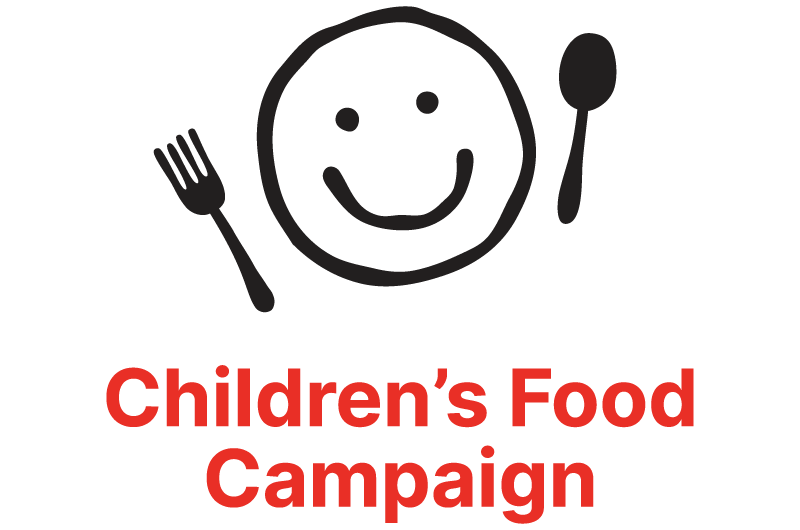Sustain • Children's Food Campaign
Protecting children
Voluntary initiatives to protect children from junk food marketing have failed, with some analyses suggesting that they have coincided with an increase – rather than reduction – in the amount of marketing for unhealthy food that children are exposed to.
Instead, it’s clear that we need regulation to protect children from junk food marketing.
Various surveys have demonstrated that the majority of parents are in favour of protecting their children from junk food marketing. For example, a survey by the British Heart Foundation survey found that 68% of parents were in favour of pre-9pm junk food TV advertising restrictions, with only 7% against. In 2006, consumer body Which? found that 79% of parents believe unhealthy foods should not be advertised during the times children are most likely to be watching television.
TV advertising
For television advertising, we need a 9pm watershed for unhealthy food adverts. This would eliminate over 80 per cent of instances of kids watching junk food TV advertising and provide clarity on when junk food adverts will be shown, allowing parents to exercise control over whether or not their kids see junk food adverts. It would also provide the food industry with an incentive to develop and market healthier products.
Current regulations prevent the advertising of “less healthy” products only during children’s TV programming. However, around 70 percent of the television that children watch is outside the hours of ‘children’s TV’ that these rules cover, with research from Which? finding that that 18 of the 20 most popular programmes watched by children under 16 are not covered.
In 2010 the Children’s Food Campaign was successful in securing a blanket ban on the product placement of junk food in any UK-made television programmes. This was the first time that the UK Government has acknowledged that children need protection from junk food marketing in all their viewing, not just children’s programmes – and regulation for other forms of marketing needs to be brought into line with this legislation.
Other forms of marketing
Apart from on television, there are currently no legal restrictions on junk food marketing aimed at children - including sponsorship, packaging, text messaging and the internet. These are growing forms of marketing aimed at children and its omission from statutory regulation is an enormous loophole exploited by unscrupulous food companies.
Since there is no evidence to suggest that these types of marketing, termed ‘non-broadcast’, which target children are any less effective than television advertising, it is inconsistent to regulate advertising of unhealthy foods on television while ignoring non-broadcast marketing aimed at children.
Regulation governing television advertising and non-broadcast marketing of food to children must be brought into line. Both must reflect the need to protect children from undue pressure to choose unhealthy food over healthy food.
Most forms of food marketing are currently subject only to voluntary codes owned, developed and enforced by advertisers, such as the Committee of Advertising Practice (CAP). Because the funding for the Code’s development and enforcement comes from the industry it is meant to regulate, the Code never strays far from industry’s interests.
There are several criticisms of this self-regulatory regime:
- It is primarily designed to ensure advertising is “legal, decent, honest and truthful” and not to protect and promote health.
- The rules mostly cover only advertising in a traditional, narrow sense and ignore the wider range of techniques used to promote a product.
- The wording is vague and inconsistent.
- Enforcement is weak and retrospective and depends on complaints from members of the public or civil society groups.
Public interest groups including Sustain have long made the case that our current system of regulating non-broadcast marketing of unhealthy food to children is not adequate. In 2008 we published a report, Protecting children from junk food marketing, setting out our concerns and attempting to design a statutory system of regulation for non-broadcast food marketing that protects and promotes children’s health. Our report proposes a regulatory system based on the principle that individuals and organisations must not act in a way where the purpose or effect is to promote an unhealthy food product to individuals under the age of 16. This should be a statutory system enshrined in law, not a voluntary industry code. The proposed law prohibits all marketing the purpose or effect of which is to promote unhealthy food to children. This covers not only traditional advertising methods but anything that acts as advertising, such as promotional websites, text messages, in-store placements and so on.
The report proposed a practical way of protecting children from junk food marketing based on international experience. In addition to this, Consumers International and the International Obesity Task Force have proposed Recommendations for an International Code on Marketing of Foods and Non-Alcoholic Beverages to Children.
Children's Food Campaign: Better food and food teaching for children in schools, and protection of children from junk food marketing are the aims of Sustain's high-profile Children's Food Campaign. We also want clear food labelling that can be understood by everyone, including children.
